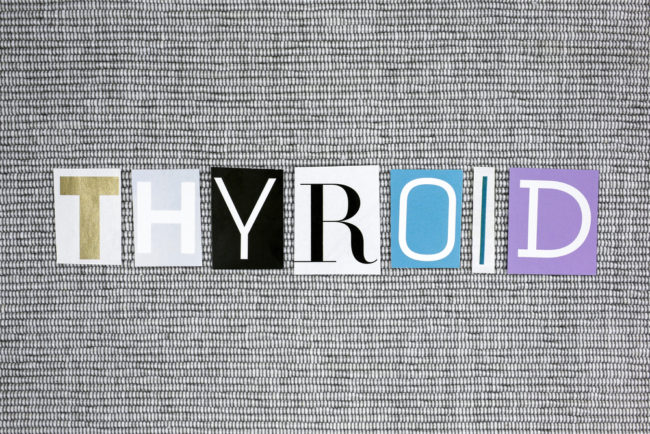Most people never think about their thyroid, but when it goes haywire, it can affect nearly every part of the body.
The thyroid is a butterfly-shaped gland found just below your Adam’s apple at the base of your neck. The gland secretes the thyroid hormone, which travels throughout the body in the blood system.
The hormone’s essential purpose is to regulate your metabolism. Because its purpose is vital, it impacts systems and functions throughout the body, including:
- Body temperature
- Body weight
- Breathing
- Cholesterol levels
- Heart rate
- Menstrual cycle
- Nervous systems
How can a tiny gland do all that? As part of your endocrine system, the thyroid turns iodine from the foods you eat into two types of thyroid hormone. When you have just the right amount of those hormones, your body efficiently uses the energy from foods. But when you have either too little or too much, problems result.
Too much thyroid hormone: Hyperthyroidism
When the thyroid is overactive and produces too much hormone, it’s called hyperthyroidism. This causes many of your body’s functions to speed up.
Hyperthyroidism causes a variety of symptoms, including:
- Difficulty sleeping
- Extreme hunger
- Increased sweating
- Missed or light periods
- Muscle weakness
- Nervousness, anxiety, or irritability
- Rapid or irregular heartbeat
- Unexplainable weight loss
How hyperthyroidism is treated depends on the specific symptoms and what is causing the condition to occur. Treatment may include oral medications, radioiodine treatments, or surgical removal of the thyroid.
Graves’ disease, a condition affecting the immune system, is the most common cause of hyperthyroidism.
Too little thyroid hormone: Hypothyroidism
On the other end of the spectrum is hypothyroidism, which is caused by an underactive thyroid. When a person has hypothyroidism, it causes the body’s functions to slow down.
Symptoms of hypothyroidism typically develop slowly and may include:
- Constipation
- Decreased sweating
- Dry, thin hair
- Extreme fatigue
- Joint or muscle pain
- More frequent periods
- Sadness or depression
- Slow heart rate
- Unexplainable weight gain
People with hypothyroidism may also have high levels of low-density lipoprotein, or “bad” cholesterol, which increases the risk of heart disease.
Hypothyroidism is treated by supplementing the body’s thyroid hormone production. There are two different types of hormone therapy medications — natural, which is made from pig thyroid, and synthetic. Once you begin taking thyroid hormone supplements, you typically take them for the rest of your life.
Hashimoto’s disease, another condition affecting the immune system, is the most common cause of hypothyroidism. When a person has this condition, the immune system attacks the thyroid, rendering it unable to produce enough thyroid hormone.
Other thyroid conditions
While hyperthyroidism and hypothyroidism are the most common, other conditions do affect the thyroid. These include goiters (noncancerous enlargement of the thyroid), thyroid cancer, thyroiditis (inflammation of the thyroid), and thyroid nodules.
Dr. Abhinaya Jawahar is board-certified in internal medicine and specializes in endocrinology at Erlanger Endocrinology.
A basic lab test ordered by your doctor can help determine whether your thyroid is functioning properly. Need a doctor? Find one here.







